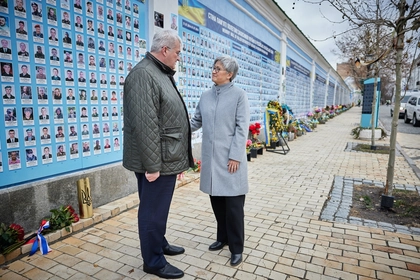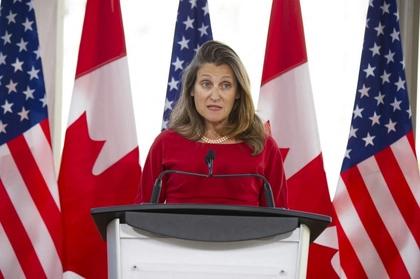Russia plans to boost its defense budget by almost 30 percent next year as it diverts resources to its Ukraine offensive, spending more on the military than welfare and education combined, a draft budget showed on Monday.
Moscow had already ramped up military spending to levels not seen since the Soviet Union era, pumping out missiles and drones to fire on Ukraine and paying lucrative salaries to its hundreds of thousands of soldiers fighting on the front lines.
JOIN US ON TELEGRAM
Follow our coverage of the war on the @Kyivpost_official.

The latest planned increase in spending will take Russia’s defense budget to 13.5 trillion rubles ($145 billion) in 2025, a document published on the parliamentary website showed, up from 10.4 trillion in 2024.
That figure does not include some other resources being directed to the military campaign, such as spending that Russia labels as “domestic security” and some outlays classified as top secret.
Combined spending on defense and security will account for around 40 percent of Russia’s total government spending, seen at 41.5 trillion rubles in 2025.

Australian Foreign Minister Visits Kyiv, Confirms Reopening of Embassy
Before sending the draft budget to the Russian parliament, Moscow trumpeted an increase in investment and social welfare alongside higher military outlays.
The “top priority” of the budget was to be “social support for citizens,” Finance Minister Anton Siluanov told a televised government meeting on Sept. 24.
“The second is the provision of expenditures on defense and security, providing the resources for the special military operation and support for families of those participating in the special military operation,” he added, using Russia’s official language for its Ukraine offensive.
But the draft budget suggests that military spending has crowded out spending on other areas of the economy.
Planned spending on “national defense” is more than twice that allocated to areas Moscow labels as “social policy.”
Ukraine has accelerated its own military spending as it battles the Russian offensive.
Kyiv will allocate more than 60% of the country’s entire budget to defense and security next year.
But Russia’s $145-billion defense budget dwarfs Ukraine’s at $54 billion, with Kyiv reliant on Western military and financial aid to continue fighting.
Truth is on our side
The budget announcement came as Russian President Vladimir Putin marked what he calls “Reunification Day” – the moment when Moscow annexed four southern and eastern Ukrainian regions in 2022.
Russia claimed to annex the Ukrainian regions of Luhansk, Donetsk, Zaporizhzhia and Kherson in September 2022 but it does not fully control any of them.
Seemingly at the cost of seriously attempting to remove Ukrainian troops from the Kursk region in Russia where the Ukrainians have been able to establish a solid foothold, the Kremlin has been pressing its Donetsk region advantage as Ukrainian soldiers in that region grapple with exhaustion and continuous bombardment against the Russians, many of whom are similarly exhausted, but which outnumber and outgun the Ukrainians.
On Monday, the Russian army said its troops had “liberated” the Ukrainian village of Nelipivka, which had a population of around 1,000 before the conflict began in February 2022.
The village is one of several dozen that Russia claims to have captured in recent months, pressing forward even as Kyiv mounts a cross-border offensive into Russian territory.
Nelipivka lies just north of the Ukrainian town of New York, where Kyiv made gains earlier in September.
The main target of Moscow’s assault in recent months has been the Ukrainian logistics hub of Pokrovsk, a city on road and rail routes that supply Kyiv’s forces across the front line.
One-to-one talks
Russia meanwhile launched a wave of missile and drone attacks at Ukraine overnight, some of which were aimed at the capital, Kyiv.
“The enemy carried out another massive attack with drones on the Kyiv region overnight. Air defense forces worked effectively in the region,” said the head of the Kyiv regional military administration, Ruslan Kravchenko.
Wreckage from some of the downed barrage caused fires but there were no casualties or hits on critical infrastructure, he added.
Ukrainian Foreign Minister Andriy Sybiga was in Budapest on Monday to meet Hungarian counterpart Peter Szijjarto.
Hungarian Prime Minister Viktor Orban is the only European Union leader to have maintained close ties with the Kremlin since the conflict began and has refused to allow EU military support for Kyiv.
“The one-to-one talks between Andriy Sybiga and Peter Szijjarto lasted about an hour, twice as long as planned,” the Ukrainian foreign ministry said, without elaborating.
Hungary has previously blocked substantial EU funds for Ukraine, a source of frustration for Ukrainian President Volodymyr Zelensky and other Western allies.
You can also highlight the text and press Ctrl + Enter






